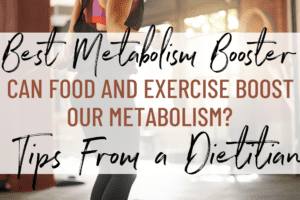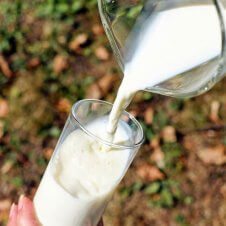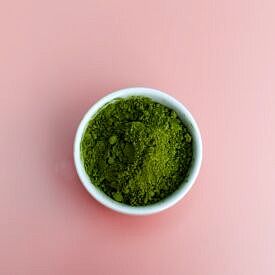Is it possible to boost metabolism? We take a deep dive look at the evidence to see if food and exercise are really the best metabolism boosters.

Every wellness influencer under the sun has probably made some kind of claim about a magic elixir or supplement that promises to be the best metabolism booster. Whether that’s taking a shot of apple cider vinegar on an empty stomach or drinking lemon water – there is no shortage of misinformation on the world wide web on how to apparently get your metabolic juices flowing and lose weight in the process. But are any of these “metabolism hacks” really a quick fix for boosting metabolism or is it just a lot of hype and pseudoscience? In today’s post, we are breaking down the evidence on some of the most common recommendations for boosting your metabolism.
Resistance Training
Research suggests that resistance training may help to boost metabolism by increasing metabolically active muscle. For example, one study found that resistance training increased muscle mass and resting metabolic rate by an average of 5%. Similarly, one review of the literature concluded that resistance training was significantly effective at reducing body fat. Muscle mass also requires more energy to maintain than fat, which naturally increases energy expenditure in order to preserve lean muscle. So if weight lifting isn’t your thing, it’s no biggie as lower-intensity exercises that activate the muscle are still effective.

Green Tea
Some research suggests that green tea may have metabolism boosting properties, however the research in this area is mixed and inconclusive. For example, one review article found that drinking caffeinated green tea increases energy expenditure by up to 8%, which may be attributed to its thermogenic properties. However, another small study found that green tea did not have a thermogenic effect. So we definitely need stronger research in this area to get a better understanding of the metabolism boosting properties of green tea. However, some of the differences may be attributed to the concentration of the antioxidant EGCG, which is thought to be the most active compound of green tea. But given that there is a lot of variability in the amounts used in research studies, it is difficult to draw conclusions about how much is actually needed in order to see any possible effect on metabolism.
Apple Cider Vinegar
It wouldn’t be the best metabolism booster blog post without mention of apple cider vinegar. However, the research in this area is not as convincing as your favourite wellness influencer makes it out to be. For example, one 2020 systematic review concluded that there is insufficient evidence to suggest that apple cider vinegar has any effect on metabolism. However, we do have some research showing that it may help to promote weight loss by increasing feelings of fullness. But the research here is mixed and often confounded by the fact that participants are simultaneously on a calorie restricted diet. Plus, most of the studies are small, short term, and don’t show significant results.

Spicy Food
Hot peppers contain the compound capsaicin, which research suggests may play a role in boosting metabolism. In fact, one study found that capsaicinoids may decrease body fat by up to 5%. However, it’s important to note that most studies provide participants with an isolated dose of capsaicinoids rather than a whole chili pepper. So the amount of whole peppers required to observe any effect on metabolism is unclear. Plus, keep in mind that eating large quantities of hot peppers may not be well tolerated for folks who are particularly sensitive to spice. But if you enjoy adding a bit of spice to your food, then live your best spicy life, but it is unclear the extent to which it will impact metabolism.
Lemon Water
Does lemon water in the morning “kickstart your metabolism”? In short, no. There is some research to suggest that drinking water before a meal may help to increase feelings of fullness and thereby reduce the amount of calories consumed at the meal. However, these effects are not exclusive to just lemon water and there is no research to suggest that lemon water, specifically, plays any role in boosting metabolism. However, there is some research that has found that water may temporarily boost metabolism by 30% for about an hour after consumption. Yet another study found that drinking water does not have any metabolism boosting effects. So while the verdict is still out on whether or not water has any impact on metabolism, any effects would be the same with or without a squeeze of lemon juice.
Quality Sleep
Getting enough quality sleep is essential for regulating our hunger and fullness hormones, which is why poor sleep quality has been associated with an increased appetite. We also have research looking at ““circadian misalignment” – which is what happens when we sleep during the day. The study found that participants burned 12-16% fewer calories when they slept during the day, which is equivalent to about a 3% decrease in energy expenditure over 24 hours. We also have research to suggest that front loading calories to earlier in the day may benefit metabolism, as metabolic rate appears to be more active in the morning and early afternoon. In fact, participants who ate more calories earlier in the day also experienced improvements in blood sugar control, lipid levels, and lost more weight. In other words, getting enough quality sleep and waking up with the sun may help to regulate appetite and benefit metabolism.

Coffee
Some research has shown that coffee may temporarily boost metabolism due to its thermic effects. For example, one review of the literature found a greater thermic effect from caffeinated coffee compared to decaf and it may increase energy expenditure by 16% over a 2-hour period. However, any effect that coffee may have on metabolism appears to be short-lived and peak in the few hours after consumption. Any impact may also vary from person to person depending on caffeine sensitivity and frequency of consumption.
Protein Intake
Eating more protein may help to boost metabolism as it actually takes more energy (aka calories) to break down and absorb protein compared to other macronutrients. This is known as the thermic effect of food which is about 20-30% for protein, 5-10% for carbs, and 0-3% for fat. On top of that, eating a protein-rich meal also helps to increase feelings of fullness by lowering our hunger hormone, ghrelin. Due to its impact on satiety, we also know that eating a protein-rich breakfast helps to regulate appetite throughout the day which may result in less energy intake overall. Protein intake is also essential for muscle protein synthesis which, as mentioned, is important for building metabolically active muscle. So if there was one food that was the “best metabolism booster”, it would arguably be protein-rich foods as it is a triple threat for metabolism boosting.

Bottom Line
In conclusion, while some foods, beverages, and exercise may have a mild impact on metabolism, there is certainly no “best metabolism booster” that will take your metabolism from zero to one hundred. But your metabolism may benefit from the additive effects of resistance training, eating meals that are balanced with protein to build muscle and boost satiety, prioritizing your sleep, and enjoying coffee, green tea, and water in amounts that you would normally consume.
Contribution by: Christina Iaboni, RD
Edited by: Giselle Segovia RD
More Blog Posts You Might Like
If you enjoyed this blog post discussing the best metabolism boosters, you might enjoy some more posts discussing metabolism:
- HOW TO FIX A SLOW METABOLISM (REVERSE DIETING VS ALL IN)
- HOW TO GAIN WEIGHT WITH A FAST METABOLISM
- PROTEIN FOR WEIGHT LOSS & METABOLISM (PROTEIN PART 1)
Updated on September 7th, 2022






Leave a Comment